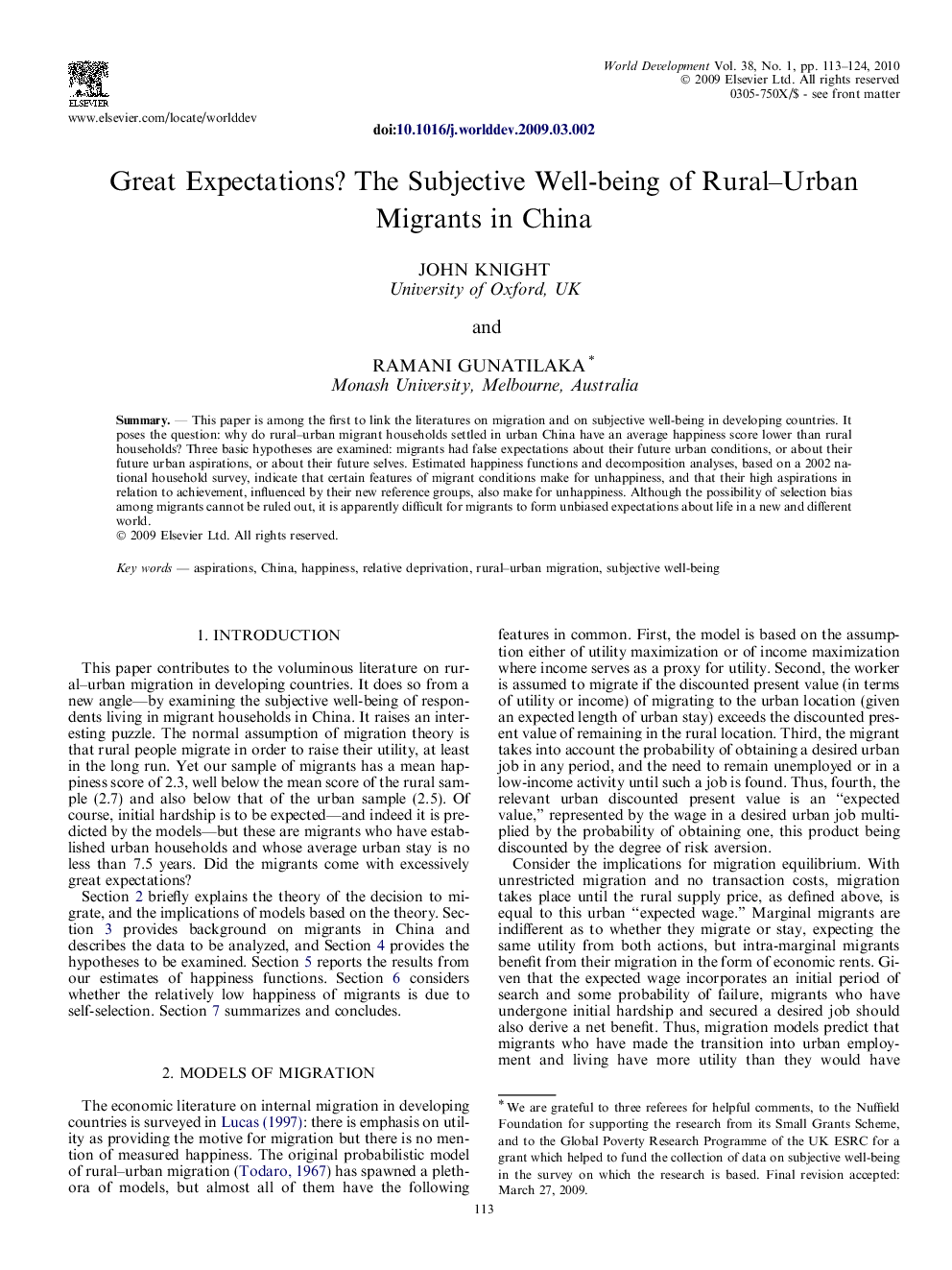| Article ID | Journal | Published Year | Pages | File Type |
|---|---|---|---|---|
| 992448 | World Development | 2010 | 12 Pages |
SummaryThis paper is among the first to link the literatures on migration and on subjective well-being in developing countries. It poses the question: why do rural–urban migrant households settled in urban China have an average happiness score lower than rural households? Three basic hypotheses are examined: migrants had false expectations about their future urban conditions, or about their future urban aspirations, or about their future selves. Estimated happiness functions and decomposition analyses, based on a 2002 national household survey, indicate that certain features of migrant conditions make for unhappiness, and that their high aspirations in relation to achievement, influenced by their new reference groups, also make for unhappiness. Although the possibility of selection bias among migrants cannot be ruled out, it is apparently difficult for migrants to form unbiased expectations about life in a new and different world.
